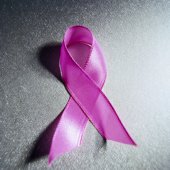
MONDAY, Sept. 27 (HealthDay News) — Breast cancer survivors are more likely to die due to poor overall health if their ability to perform day-to-day physical tasks has been affected by the disease or treatment, a new study has found.
Researchers followed 2,202 breast cancer survivors in California and Utah for up to 11 years after their diagnosis. The risk of dying from breast cancer was the same for those with physical limitations and for those who had no physical problems, according to the report published in the Sept. 22 online edition of the Journal of the National Cancer Institute.
However, those with physical limitations were much more likely to die from other diseases. The study also found that older and overweight patients were more likely to have physical limitations for at least 18 months after treatment.
These impairments, which occur in as many as 39 percent of breast cancer survivors — affect motion, strength and dexterity. This can lead to an inability to kneel, lift items heavier than 10 pounds, handle small objects, to stand in place, to sit for long periods, to walk up and down a flight of stairs, or to walk two or three city blocks.
“Our study provides evidence of why it is important to develop interventions that improve physical function, to mitigate the adverse effects of physical limitations. Intervention strategies — on the part of the individual, the community and the health provider — should emphasize physically active lifestyles,” study author Dejana Braithwaite, an assistant professor of cancer epidemiology at the University of California San Francisco’s Helen Diller Family Comprehensive Cancer Center, said in a UCSF/Kaiser Permanente Northern California news release.
“When we talk about improving physical function, we are talking about improving a woman’s ability to perform normal functions of everyday life, like walking around the block, getting up easily from a chair or carrying a heavy bag of groceries. These activities appear to make a difference in a woman’s chance of survival after a breast cancer diagnosis,” senior study author Bette Caan, a senior research scientist in Kaiser’s research division, said in the news release.
More information
The American Cancer Society offers advice for cancer survivors.

